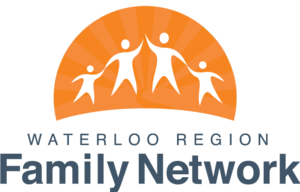
We collect basic website visitor information on this website and store it in cookies. We also utilize Google Analytics to track page view information to assist us in improving our website.
In Spring 2023, Waterloo Region Family Network (WRFN) and Spectrum Waterloo Region’s Rainbow Community Place (Spectrum) came together to assess the need for supports for the trans-autistic community. Trans and autistic communities face their own unique challenges navigating society. Trans individuals might experience transphobia, barriers to accessing public spaces, and threats of violence while autistic individuals can experience ableism, lack of accessibility and/or accommodations, and other forms of systemic discrimination. When someone is both trans and autistic, the discrimination they face is compounded – meaning any support given to this community is incomplete if it does not consider the intersections of their identity.
Interviews and surveys were conducted to gather insights from the community to help inform the establishment of potential programming for the trans-autistic community. We were so fortunate to work with Cayden Genik on this project. Cayden played an instrumental role in conducting interviews, research and report writing. Cayden’s full report, Establishing Effective Trans-Autistic Support, can be found here.
This collaborative project sought to acknowledge the increasingly visible intersection between autism and gender divergence, elevate the voices of autistic and/or trans community members, assess the need for programming, and establish next steps to implement potential programming.
We connected with the trans-autistic community through three group interviews (one in-person and two virtual) and an online survey. All information collected was anonymous. We had a total of sixteen participants, some of whom were members of the trans-autistic community (either with formal diagnosis or without) while others were parents of individuals in this community. While we valued all insights, emphasis was given to voices of those within the trans-autistic community themselves.
When speaking with those belonging to the community, many common themes began to emerge:
When speaking to the parents of those belonging to the trans-autistic community, the following themes were identified:
When asked about the challenges they have encountered, those identifying as autistic and/or trans shared the following:
Out of all autistic and/or trans participants, only five had experience with existing programming. Those that commented on their experiences with programming shared that they valued having the ability to learn about themselves and connect with peers in a safe space where they did not feel the need to justify their existence. In addition, these individuals shared the following critiques of their experiences with programming:
Through our collaboration, interviews, surveys, and research gathered by Cayden, it is clear there is a need in our community for a specialized program for the trans-autistic community. WRFN and Spectrum will continue to work together to build a program to address the unique needs expressed by our local trans-autistic community.
As Cayden highlights, effectively supporting this diverse community involves constantly revising current practices and seeking ways in which they can be improved. With the guidance provided in Cayden’s report, we aim to create programming that is led and informed by those with lived experience where others can feel understood and have access to reliable resources.